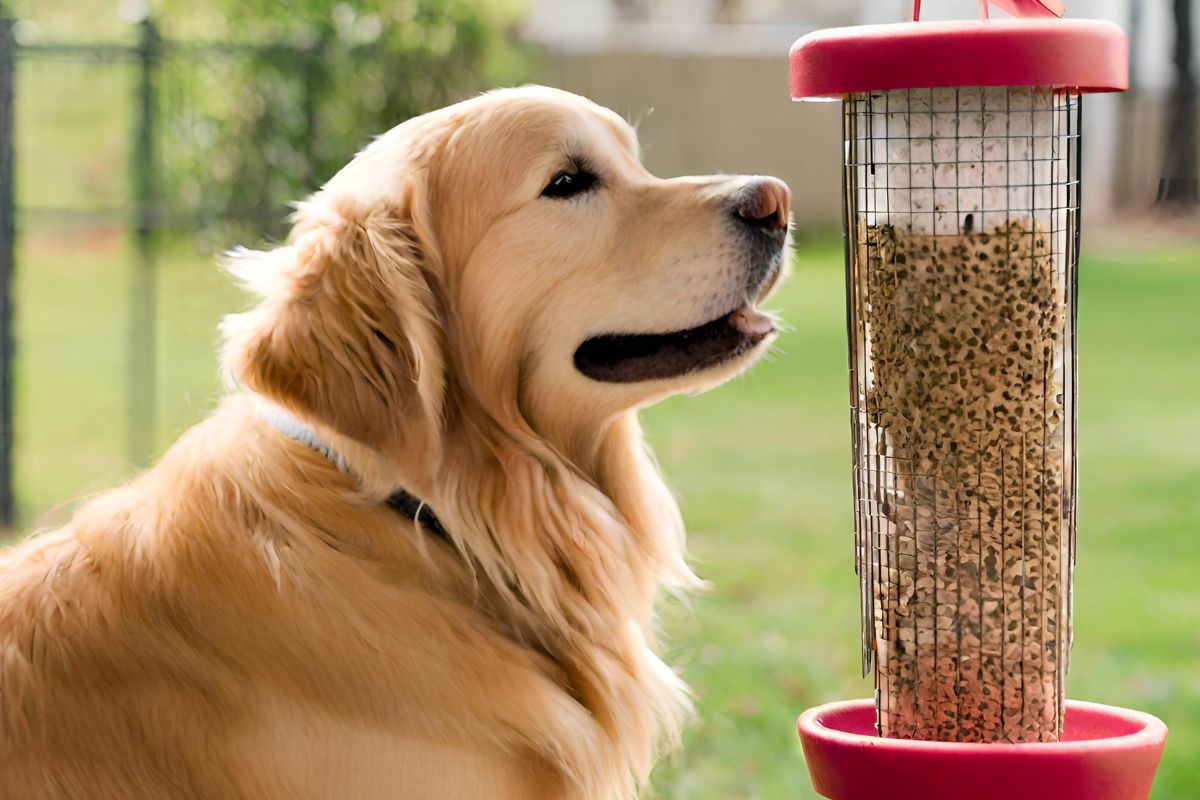
It’s an age-old debate amongst pet lovers; which species is smarter, cats or dogs? Of course, we know which side dog lovers would take, but what is the objective truth? The answer may not be as straightforward as one or the other.

What is intelligence?
Before we compare the intelligence of different animals, we should consider what intelligence actually is. According to the dictionary, intelligence is the ability to acquire and apply knowledge and skills.
It’s important to note that because cats and dogs are such different animals with such different needs, lives, temperaments, and roles, it’s difficult to compare them, just as it would be difficult to compare either of them with ourselves.
As humans, we also have many aspects of cognition that we would consider intelligent; academic intelligence, creative intelligence, emotional intelligence, etc. With so many different aspects of human intelligence, it is hard to quantify other species’ intelligence, especially in relation to each other.
Cat behaviorist Kristyn Vitale breaks down “intelligent” aspects of cat cognition into three categories; problem-solving ability, concept formation, and social intelligence.
World-renowned neurologist Professor Stanley Coren, famous for his works investigating the psychology, emotions, and intelligence of dogs and his 1994 book The Intelligence of Dogs, ranked dog breeds by intelligence via tests in three similar categories; instinctive intelligence, adaptive intelligence, and working/obedience intelligence.
The first refers to a dog’s ability to do the job that they were bred for, for example, a Border Collie herding sheep, while the second test refers to a dog’s ability to learn independently, and the third refers to their ability to learn from humans.
What do the experts say?
According to neurologist Professor Stanley Coren, 51% of a dog’s intelligence comes from their genetics and 49% from their environment. Their breed also plays a huge role. If we assume that this is the same for cats, it’s safe to say that there is no definitive answer to who is more intelligent, and that, as with humans, it is very much about the individual.
Senior animal researcher at Barnard College, Alexandra Horowitz, also doesn’t believe it’s as simple as cats vs. dogs. “At its simplest form, cats are smart at the things cats need to do, and dogs at dog things,” she said.
However, animal behavior researchers have been measuring both canine and feline intelligence for years. Let’s take a closer look at the intelligence of both species and how they compare to each other as well as us humans.
The intelligence of cats
According to cat behaviorist Kristyn Vitale, as mentioned in the section above, cats show a high degree of social intelligence that parallels dogs. For example, studies show that cats can distinguish between names and similar-sounding words, as well as respond to human facial expressions and distinguish between our voices.
They also have a preference for human interactions over food and toys. How much attention somebody pays to a cat also makes a difference in how much they like the person. All of which have been observed and documented in dogs for years and will be confirmed by any owner!

The intelligence of dogs
It’s not all about social intelligence. As mentioned above, Professor Stanley Coren’s book ranked 138 dog breeds by intelligence via three test categories; instinctive, adaptive, and working or obedience. The first and last tests were carried out by teaching the dogs commands and the second test involved recognizing social/emotional cues, memory, and problem-solving.
The breeds ranking ‘average’ intelligence were able to learn a new command within 25-40 repetitions and follow a known command on the first try at a 50% success rate. However, a dog’s intelligence appears to be very breed-dependent.
For example, the brainbox Border Collie came out on top of the ranking, as they were able to learn a new command in fewer than 5 repetitions and follow a known command on the first try with over 95% success rate.
Comparative research
There is some research that directly compared the intelligence of cats and dogs using different categories of intelligence.
In one of the studies, researchers found no significant difference between their respective abilities to find food that had been hidden by following a human’s pointing. However, the researchers did note that the cats lacked some of the components of attention-getting behavior compared with the dogs.
It is also thought that cats understand around 20-40 human words, while the average dog can learn around 165, but this may be drastically underestimated. As documented with a Border Collie called Chaser, who was famously able to learn over 1,000 of her toys by name.
Brain size may also play a role in their comparative intelligence, and dogs’ brains are larger than cats’. In 2014, Proceedings of the National Academy of Sciences put over 500 animal species to the test and found that the bigger the brain an animal had, the more self-control they had, which likely translates into their wider cognitive function.
Cats vs. dogs in comparison to human intelligence
According to pet behaviorists, the average adult cat’s intelligence matches that of a 2-year-old human child. The average dog’s linguistic capabilities are thought to be about the same, however, the brainy Border Collie’s is said to be closer to a 3-year-old, while their ‘basic arithmetic’ trumps that of a 3 or 4-year-old.
Which breed of dog is the most intelligent?
As we’ve mentioned, Border Collies are universally recognized as the most intelligent breed of dog. Bred to herd sheep, they are incredibly alert, agile, socially aware, and sensitive dogs, as well as famous for their high energy, intensity, and playfulness.
According to Nova Science Now, their exceptionally high levels of intelligence are thought to be down to a gene called CTNND2, which is responsible for normal cognitive development in humans. This gene isn’t present in other breeds of dogs, but their genome shows selective breeding for it.
According to Stanley Coren’s research, the second smartest breed of dog is the glamorous Poodle, while the third is the fearless German Shepherd.

What type of cat is the most intelligent?
Intelligence by breed is less explored amongst cats, but Abyssian cats, Bengal cats, and Burmese cats are widely believed to be the most intelligent types of cats, as well as Cornish rex cats, Scottish fold cats, Singapura cats, Siamese cats, and Turkish Angora cats.
Why isn’t my dog smarter?
Even if your dog is a naturally brainy breed, every dog has a different personality, just like we do, and not all dogs will be geniuses. That said, not being able to grasp advanced tricks and games doesn’t mean your dog isn’t smart or can’t learn. Rescue dogs may also find training difficult if they come from a neglected background.
Any dog can learn at any age, you just have to be willing to put in the time and effort, and of course, be patient. Always follow good training practices and seek help from a professional if you’re struggling to train your dog, but remember that doing cool tricks and being able to remember the names of toys is not the be-all and end-all. Being healthy, happy, and loved matters much more!
How can I train my dog to be more intelligent?
If you want to train your dog to be a canine genius, you have to be consistent. Start training your pup as early on in their life as you can, but remember to start with the basics. Keep your training sessions short and sweet, between 5-15 minutes long, and be consistent by using the same queues and techniques.
That said, there’s no need to overdo it, in fact a 2011 study concluded that it’s actually most effective to train your dog once a day and once or twice a week. They found that those who did were able to learn significantly better and faster than those who were trained every day.
Not only that, but the dogs who only did one training session a day learned more than those who did three in a row. So, less really is more!
Dog training should always be reward-driven and fun, as dogs need to want to learn to learn best – and to avoid diva behaviors! Some research also shows that the use of a behavioral marker, like a clicker, may speed things up, too.
How can I test my pet’s intelligence?
Three fun little tests to test out your pet’s intelligence!
Empathy
To test your pet’s empathic skills, pretend to cry in front of them and see if they try to comfort you!
Cognition
To test your pet’s cognition, try playing the cup game with them. To play the game, put three cups upside down on the floor in front of them and place a treat underneath one, then ask your pet to find the treat. To up the stakes, try moving the cups around once the treat is hidden.
Problem-solving
This time, place a treat under a piece of furniture that your pet can only reach by moving it or navigating their way around it, such as by using their paws, to test their problem-solving abilities.
Who is smarter – cats or dogs? The answer is a complex one. Intelligence can be broken down into different categories, some of which dogs excel at, some of which cats excel at, and many of which they both excel at. But whether our pets are brainboxes or prefer a game of fetch to solving equations, we love them all the same!







